-
About
- About Listly
- Community & Support
- Howto
- Chrome Extension
- Bookmarklet
- WordPress Plugin
- Listly Premium
- Privacy
- Terms
- DMCA Copyright
- © 2010-2025 Boomy Labs

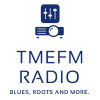 Dick Slack
Dick Slack
Listly by Dick Slack
To all the artists appearing congratulations, to all artists NOT appearing well done and thanks for the music you all finished 21st.
Difficult to choose 20 but we managed at last.
Music appearing on TMEfm Radio.

Individually, Tiffany Pollack and Eric Johanson are both powerhouses in the Louisiana music scene – she as an established jazz vocalist and he as a rising singer and blues-rock guitarist. Together for the first time here, they create a New Orleans flavored rue guaranteed to have you yearning for more.
The musical meeting didn’t happen by chance. When Tiffany reunited with her biological family about a decade ago, she discovered that she and Eric were cousins, and their mothers have been pushing for them to work together ever since.
A native of the Big Easy and adopted at birth, Pollack began working professionally since her teens after a neighbor, Louisiana legend Russell Batiste, invited her to sing backup in his band. Her journey included several stops, including P.H. Fred’s The Round Pegs, The Consortium Of Genius a pair of jazz ensembles and an ‘80s metal band while raising a family and first studying mortuary and then opening a business.
She walked away from the funeral industry a few years ago, and has been dividing her time between two jazz groups: The Dapper Dandies and her own Tiffany Pollack & Co. This release is her first album.
A native of Alexandria, Eric began jamming in the Crescent City at age 15, but immigrated for a while to New Zealand after losing everything he owned to Hurricane Katrina. He returned stateside in 2010 and spent time in the bands of Cyrill Neville, Terrance Simien and Corey Henry’s Treme Funktet before fusing funk, blues and rock and making his debut as a bandleader with the well-received CD, Burn It Down, on Whiskey Bayou Records in 2017. He’s been touring recently in support of Tab Benoit, who produced.
Pollack and Johanson penned seven of the 11 cuts here. They’re backed by John Gros on keyboards, producer Jack Miele on bass, bass guitar and percussion, Phil Wang on bass, Brentt Arcement on drums and keys with Sean Carey providing backing vocals. Harp player Jumpin’ Johnny Sansone and the 504 Horns both make single-cut guest appearances.
The title tune, “Blues In My Blood,” opens the action. It’s a slow blues that opens acoustically with both a Delta and gospel feel that gives Tiffany plenty of space to show off her warm, powerful alto voice. It builds in tension throughout and gives Eric room to deliver a burning, but brief electric solo. The feel and tempo continues with Johanson at the mike and Sansone making haunting runs on the reeds for “Memories To Forget,” which recounts walking away and turning his back on his one true love.
A step-down run on acoustic guitar kicks off “Keep It Simple” before the action heats up for a driving, stop-time electric blues with Tiffany urging a lover to stop changing his mind and making things more complicated than they should. The mood turns somber as she delivers the acoustic dirge “Michael.” Based on her former job, it’s tribute to a strapping 19-year-old who lays dead on her mortuary table.
The duet, “Diamonds On The Crown,” powers out of the gate with loosely veiled statements that speak out against war, poverty and the world’s current state of affairs, before covers of the Rolling Stones’ “No Expectations” and Nina Simone’s “Do I Move You?” The blues-rocker, “Slave Of Tomorrow,” finds Johanson wondering if he’s to blame or “if the world’s half-insane” before the true blues love song, “Get Lost With Me,” brightens the mood. Two more covers — Joni Mitchell’s “River” and an interesting take on Pete Seeger’s warhorse, “If I Had A Hammer” – bring the disc to a close.
Available through iTunes, Amazon, Spotify and other outlets, Blues In My Blood is rock-solid. The mighty Mississippi and hints of the past flow throughout as Pollack and Johanson deliver material with thoroughly modern themes.
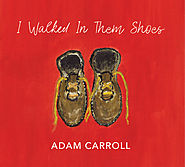
Everyone knows at least one of them – the one who makes it look easy. The athlete who can effortlessly succeed at any sport, the friend who can quickly produce the best meal out of seemingly nothing, the music fan who can quickly and completely dissect any new song or album. We mere, flawed mortals may at times resent those talents, but we know that, behind all that “easy” success, there’s most likely years of hard work and learned failure that’s brought out and honed that talent for us to enjoy. Adam Carroll is that guy. Through six previous studio albums, Carroll has made the job of being a singer-songwriter seem effortless and tossed off, but if you’ve ever picked up a guitar or a notebook, you know that ain’t the case. Now, on his seventh album, I Walked In Them Shoes, Carroll reminds us how deceptively difficult, but still rewarding, a musician’s life can be.
The lead track, “Walked In Them Shoes” (written with Brian Rung and Paul Cauthen), is THE story of the modern-day road musician. Like most Carroll songs, it’s simple guitar and vocals – he even continues his habit of mentioning the song’s title at the beginning of the recording. We’re told about the travel conditions – “Stuck in a Detroit diesel/Pretty sure it’s a Silver Eagle/The heat’s been off for about a hundred miles.” But the effort is worth it, at least somewhat: “Well sometimes it’s gold, or so we were told/But we go the extra mile.” It’s the workaday life that thousands of musicians are living, but few express it so plainly and concisely.
Carroll is not the most overtly political of songwriters, but he sees wrong where there should be right in “Storms”, noting that one’s (mis)fortunes are often simply a function of geography: “Well I pray for Puerto Rico/While I’m in bed safe and warm/And when I lay down to go to sleep/They’re still struggling with that storm.” On a more personal level, “The Last Word” (written with Dustin Welch and Halleyanna Finlay) asks why we shout when we should be listening: “If we’re always trying to write the end/We’ll never look back on the time we did spend.” We lose too much when we fight.
Road and touring songs form the core of I Walked In Them Shoes. “Crescent City Angels” (written with Michael O’Connor and Carroll’s wife, Chris) expresses a love of New Orleans, warts and all. “My Only Good Shirt” follows producer Lloyd Maines (and his clothes) through the high and lows of his career – “I’m not Viva Las Vegas/But I’m Motel 6 famous.” And “Night At The Show” follows the emotional swings of an evening at the local honky-tonk, from musician to fan to lonely drinker: “You were the best friend to that kind/(Which is my kind)/That I’ve ever known.” This song is a tribute to Kent Finlay, long-time owner of Cheatham Street Warehouse in San Marcos, Texas, who was the patron saint of Texas songwriters and passed away a few years ago.
The musical adornment is pleasantly sparse on the album. “Caroline” features some fantastic pedal steel from Lloyd Maines, and “Cordelia” rides a bed of harmonium, which was provided by engineer Pat Manske during the original recording of the song but played by Carroll (at Maines’ insistence) on the final cut. That’s it for studio trickery on the album, leaving the songs to sink or swim on their merits. And swim they do.
I Walked In Them Shoes was produced by Lloyd Maines and recorded, mixed and mastered by Pat Manske. Carroll (vocals, guitar, marmonica, harmonium and keys) and Maines (pedal steel, rhythm and slide guitars) are the sole musicians of record on the album. Carroll, who isn’t known for his frequent release of new material, has promised a second album this year, a collection of songs written and performed with his wife, Chris. If you like I Walked In Them Shoes, keep that on your radar.
review from Americana Highways

Some albums do not need a review, Adobe Road is one so close you eyes and experience the music.
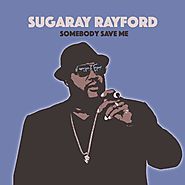
Nominated for four Blues Music Awards, including “BB King Entertainer of the Year,” powerhouse, soul-blues singer, Sugaray Rayford will release Somebody Save Me on March 1, 2019 via Forty Below Records and produced by its founder, Eric Corne.
I’d say somebody got smart by choosing this fierce vocalist and performer, Sugaray Rayford, and letting him loose on 10 original new blues, soul and rock n’ roll tracks, written by Corne. Vocalists like Sugaray Rayford don’t come along every day. He’s raw talent with a voice like a canon, but with pure groove and emotion. Rayford has the capacity to caress slow songs like a modern day Teddy Pendergrass or grab the wheel of an up-tempo number and steer it home with soulful command.
This is the case on Somebody Save Me. Sugaray Rayford has the vocal chops to die for, but he’s got something else—it’s called star power and charisma. And there’s no way you can manufacture any of that with auto-tune or Pro Tools. This guy’s got ‘It.” See if you don’t agree by clicking the first track, “The Revelator.”
Opening with a heavy downbeat and bass line not unlike some 90’s hip hop, this song takes off as Sugaray blasts the R&B-soul-blues track with his dynamic and spirited voice. He grabs this song with both hands and digs deep. He’s feeling it–and the groove. And so was I. This is a song I want to see Sugaray perform live. You’ve got the soul factor with the backing singers (wah-oo wah-oo) and some kind of stellar trumpet solo—then the song glides back to that heavy base line.
It’s more than great vocal chops. Sugaray throws his larger than life personality into the track and takes control from the front seat of that song.
“Time To Get Movin’” is a rocking blues number with plenty of social commentary. It’s an up-tempo song with great rhythm and catchy guitar riffs. Sugaray gets behind this song with his old school voice and passion. This is one tight band that includes guitarist Rick Holmstrom, bassist Taras Prodaniuk, drummer Matt Tecu, keyboardist Sasha Smith, guitarist Eamon Ryland and the horn section from Late Night with Conan O’Brien. A couple of nice harp riffs fill out the track courtesy of Eric Corne. This is yet another song that’s perfect for a vocalist like Sugaray.
There are some soul songs on the album like “You and I,” complete with the insanely tight horn section that creates a good platform for Sugaray–he sinks his teeth into this soul blues tune as well. You can just hear who Sugaray is when you listen to this track and others on the album. With some strong backing vocals, this is a classic up-tempo, soul/R&B tune with groove.
“I’d Kill For You Honey” is a standout track on the record with swampy groove and slide guitar. The drummer, Matt Tecu, locks it down tight with some great rhythm. This band boasts outstanding musicianship. Sugaray is in good company and he kills it on this one. He growls, he sings softly with plenty of body and soul, and works his magic on an already stellar tune.
With almost a Zydeco rhythm, “Sometimes You Get the Bear (And Sometimes the Bear Gets You)” is another standout, with a swampy, lively feel that shifts mid-song into a blues shuffle, complete with classic blues guitar riffs. Sugaray’s magnetic vocals could almost overpower a song or a band, but he works it like the seasoned pro that he is.
The title track “Somebody Save Me” is a vintage soul crooner and Sugaray’s deep, soulful voice is a touch of velvet. I could do without the effects on the organ solo but those don’t detract from this being a deeply moving song. Sugaray sings it not just with controlled vocal power but with enough emotion to get you out of your seat and into the arms of your Honey on the dance floor.
The album closes with a winner, “Dark Night Of The Soul,” a hot, slower soul-blues number with sultry horns and backing singers. Sugaray is right on time with his phrasing and vocal punch. It seems that he’s in his element, steering this track into the pocket of rhythm.
Sugaray is a singer to be reckoned with–authentic, gutsy, and with vocal chops you just have to be born with and hone. He’s the real deal.
Review from Rock and Blues Muse
https://www.youtube.com/watch?v=ehsjbTnvNb8&feature=emb_logo
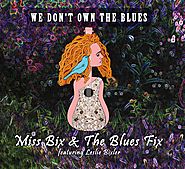
The concept of this collection of songs is inspired by the home of the blues, the Crossroads in Clarksdale, Mississippi. Leslie Bixler (aka Miss Bix) spent several months there soaking in the culture and learning the blues from the founders themselves. This is a rare find, 12 songs that pack a punch, in a conceptual flow, reminiscent of days past, when albums told a story.
Leslie Bixler and co-producer Ralph Carter (previously with Eddie Money and Sugaray Rayford), who brings bass, percussion, guitar and keys to many of the songs, are joined by John ‘JT’ Thomas (keyboardist with Hornsby), Gary Mallaber (drummer previously with Van Morrison, Steve Miller and more), blues guitarist extraordinaire Franck Goldwasser (aka Paris Slim), sax man Bill Bixler, and harp player RJ Mischo.
The songs reflect the culture that permeates the south – ‘Voodoo Man,’ ‘Black Widow,’ ‘Slave To The Grave’, and ‘Crazy ‘Bout You’ all have the smoky sensuous sound of the bluesy south. At the same time, Bixler creates a sound and voice that is all her own, and each song tells a different story. The Hendrix inspired ‘You’re A Child’ harkens back to the excitement of early rock days, and features the amazing RHCP drummer, Chad Smith, with whom Leslie worked on the children’s album “Rhythm Train.” The opening track ‘Follow Me Down’ draws the listener in with a trance-like psychedelic groove and from there the excitement builds.
Artistic influences like Sheryl Crow, Bonnie Raitt, Peter Gabriel, Sting, John Mayer, and many others weave together in this altogether new package. Hints of Motown are perceptible in the R&B feel of ‘Baby Come Back’ and the ending cut is a sensitive homage to the muse herself, that never ends, in ‘All The Time.’ The title cut ‘We Don’t Own The Blues’ is a playful look at the nature of love and heartbreak, and is destined to become a blues classic, as is the romping ‘If You’re Doing What I’m Thinking.’ The vocal stylings of the heartbreaking ballad ‘It Wasn’t Me’ are beautifully framed with the gorgeous keyboard virtuosity of John ‘JT’ Thomas.
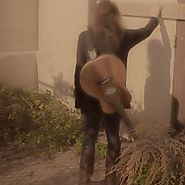
Josie’s Country-Rock vocal style, combined with the skillful musicianship evident throughout the CD have prompted a number of listeners on ReverbNation to ask the question, “were these recordings done in Nashville?”.
The CD was in fact produced and recorded on Long Island at “Melts In Your Ears Studio” and mixed at “Workshoppe East”, both located in Huntington.
Can’t Go Home contains 10 tracks of original music in which Josie covers a wide range of subjects related to the human condition. The title track contemplates the loss of one’s past. Other tracks cover themes such as Infidelity (Dignity), Infatuation (Crush), Relationships (Good People, Bad Love), Drug Addiction (Mother’s Love), Long Island Living (Kit House) and even Political Partisanship (Two Trains). Two Trains was co-written by Mike Nugent, the CD’s producer, and is the only co-write on the CD.
The very active live music scene on Long Island, and the abundance of local talent continues to inspire Josie as a songwriter and performer.
Josie enjoys creating images and telling stories through song and often says, “hooks are everywhere, you just need to listen”.
Josie will tell you that she’s been singing every day of her life — around the house and everywhere she went since childhood. She can remember her mother saying to her, “Please, try to pipe down, just for a little while”.
Luckily for local musicians, Josie is quite active on the Long Island music scene. She runs several open mics: at Urban Coffee in Greenlawn on 2nd and 4th Fridays and at the Park Lounge in Kings Park on 3rd Fridays.
Additionally, once a month she hosts a Singer-Songwriter night at Urban Coffee. Josie performs with her husband Frank Bello as “Duo Bello” at many festivals throughout the Island including their annual hosting of the Long Island Fall Festival Acoustic Stage. She is honored to participate in the LI-based group OOMPA (Organization of Open Mic Performing Artists) and recognizes all the talent and support their membership provides to open mics and musical charitable events throughout the Island.
Josie’s music is available on most digital distribution platforms such as iTunes and CD Baby. A hard copy of the CD can also be purchased at CD Baby. Here’s the link: https://store.cdbaby.com/cd/josiebello
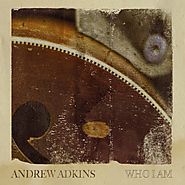
After seven years of fronting the popular Appalachian stompgrass band, The Wild Rumpus, at countless festivals, concerts, and clubs including Merlefest, Bristol Rhythm & Roots, and the Americana Music Association, as well as writing nearly all of the songs for their three studio albums, Andrew Adkins has now firmly established his own voice with the release of his fourth solo album, Who I Am, on Mountain Soul Records.
The album features an all-star lineup of West Virginia musicians, Chris Stockwell (dobro), Johnny Staats (mandolin), Ammed Solomon (drums), Clint Lewis (bass), Bud Carroll, Ron Sowell (guitar), as well as Mira Stanley, Chuck Costa, Cara May Gorman, Stephen Struss (of The Sea The Sea) and Annie Neeley on harmonies and background vocals.
Andrew has a voice that is both real and comforting, taking listeners through his songs that are filled with the highs and lows of life and love. I challenge anyone who listens to this album to not find a phrase, a lyric or even an entire song that doesn’t bring up a memory, or at the very least, the sense of being able to identify with Adkins and his songwriting.
After my first listen, I was immediately drawn to the songs,“Fragile Heart”, “Praying for Rain” and “Every Monday Morning“. Sometimes its lyrics that draw me in, other times its a melody or the beat. The first line of “Fragile Heart” hooked me immediately, “There was a time I gave my love away free. Gave it to a girl who never loved me”. I can’t imagine there isn’t someone out there that hasn’t felt this way, especially in their youth. Unrequited love is a powerful thing, and Adkins sings about how it shaped his fragile heart. Most importantly this song is one that people can relate to and that’s what’s great about this record. It’s full of real and relatable songs, that capture emotions or stories that people have most likely lived themselves.
“Praying for Rain” is another song on the album with lyrics that I immediately thought could have been pulled from my own head. “Well, sometimes I wish it was raining…. to match my mood”. There have been many days in my life that a sunny day is just too much and I long for a rainy and cloudy day to match how I’m feeling inside. In “Praying for Rain”, the song reflects on love that was lost. With amazing lyrics like “I don’t need you, but I want you. Pretend I don’t care, but I do. You’re the sweetest poison that I’ve ever tasted…”
If you’re wanting a lighter song that won’t give you all the feels, may I recommend the song, “Every Monday Morning“? It’s got an upbeat tempo, which I love, and when the first notes of the stand up bass hit, you can’t help but tap your feet. The song has a definite old school/ Rockabilly feel to it and nicely balances some of the softer, more emotional songs on the album.
If you’re looking for a well-rounded album, filled with phenomenal songwriting and musicianship, then you’ll want to pick up Who I Am .
Thanks to Splice for the review.
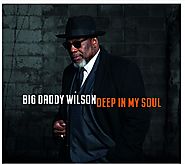
Based in Germany after being discharged from the Army more than 25 years ago, Big Daddy Wilson has made a name for himself as an acoustic bluesman in the past, but delivers a set of sensational soul blues here in an album recorded stateside under the direction of Grammy-winning producer Jim Gaines.
Born Wilson Blount in Edenton, N.C., he grew up in poverty, sang gospel in church and listened to country on the radio. His first exposure to the blues didn’t happen until adulthood in Europe, where he’s made his home since marrying a German woman.
Once a shy man who penned poems on the side, he quickly realized that he’d “found a part of me that was missing for so long in my life.” Influenced by fellow ex-pats Champion Jack Dupree, Louisiana Red, Eddie Boyd and Luther Allison, he started putting his words to music and putting them on display at jams, where he quickly won over audiences with his tunes and powerful, warm baritone voice.
Now in his early 60s, he began a recording career in the 1990s and has at least a dozen releases to his credit, both as a leader and in acoustic partnership with Doc Fozz. He’s been associated with the Ruf imprint for the past three years, joining Vanessa Collier and Si Cranstoun for Blues Caravan 2017: Blues Got Soul and the CD/DVD solo release, Blues From The Road.
Wilson hooked up with Gaines, a 1999 Grammy winner for his work with Carlos Santana and recorded this triumphant homecoming at the legendary FAME Studios in Muscle Shoals, Ala. Featuring an all-star lineup that includes Laura Chavez and Will McFarlane on guitar, Dave Smith on bass, Steve Potts on percussion, Mark Narmore and Rick Steff on keys, Brad Guin on sax, Ken Waters on trumpet and Mitch Mann on backing vocals, this disc swings from the jump.
Big Daddy penned ten of the 12 cuts here. You know you’re in for a treat from the opening phrases of the slow-blues shuffle “I Know (She Said),” which describes love at first sight and the realization that it would be eternal after “one smile, one word, one simple dance.” The theme runs powerfully throughout, continuing with the medium-fast “Ain’t Got No Money,” which states: “I’m a full grown man with strong loving arms” and everything else he needs.
“Mississippi Me,” a keyboard driven ballad written by Sandy Carroll, keeps the refrain going with images of the wind blowing through the willows in Tupelo before the band gets funky to deliver “Tripping On You.” This time, the love bug’s bitten Wilson so deeply that it’s akin to dreaming, singing and dancing in the rain.
The message shifts slightly for “I Got Plenty (Money Don’t Grow On Trees).” This time, Big Daddy sings praises for all the good folks he encounters every day. He cautions not to worry about what other people say in “Hold On To Our Love” before “Deep In My Soul” reveals that all of his tunes come from a life that’s included picking cotton and a hard-scrabble existence.
That song sets up the bittersweet material that follows. “I’m Walking” finds Wilson tired of fussing and fighting with his missus along with what he terms her “nasty” ways – so much so that he’s heading for the door. He recognizes his lady’s torment in “Crazy World” and vows to stay , but quickly discovers he doesn’t what to be the “Redhead Stepchild” after realizing that there’s “too much salt in my gravy” and that she’s there when he returns home after a hard work day.
What’s to blame? “Voodoo,” he says, still in love and deeply confused, before bringing the album to a close with a brief acoustic refrain of the traditional gospel tune, “Couldn’t Keep It To Myself.”
Available through most major retailers, Deep In My Soul is a welcome return home to someone who’s been away far too long. If you like old-school soul blues, you’ll love this one. It makes your heart sing then tugs at your heart strings!
review from BlueseBlast
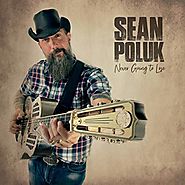
A decision taken after much difficulty. So many great albums have been sent to us lately the choice was hard almost cruel.
Why did “NEVER GOING TO LOSE” get it’s nose in front and get in the list?
Songs being “Radio Friendly” helped.
Sean is a great guy but then so are the other artists.
You listen to a track from “NEVER GOING TO LOSE” and you think “that’s good”, listen to them all and they all sound good.
Listen to “NEVER GOING TO LOSE” again the songs sound different, you check to see if you are playing correct song, yes you are. There is so much going on during a song that it’s a different song the second,third… play.
Sean makes magic, magic music, that’s how he won the race.
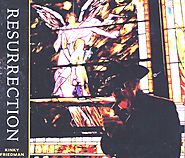
Home / Music / Reviews music / Album Reviews / Music Review: Kinky Friedman – ‘Resurrection’
Cover Kinky Friedman Resurrection
Music Review: Kinky Friedman – ‘Resurrection’
Richard Marcus November 1, 2019 Comments Off on Music Review: Kinky Friedman – ‘Resurrection’ 89 Views
Save
After a 40 year hiatus Kinky Friedman proves with the release of his new album, his second in as many years, Resurrection, he’s back as good as he ever was. While last year’s release, Circus of Life, was a great reintroduction to Friedman, this album is even better.
Friedman’s fans are legion, and it turns out worldwide. When he was doing a book tour in South Africa in 1996 he met Tokyo Sexwhale who had been imprisoned on Robben Island with Nelson Mandela. Sexwhale reported Mandela listened to Friedman’s song about the Holocaust, “Ride Em Jewboy”, for three years while in jail.
Which may go a long way to explaining why the opening track on the CD is about Nelson Mandela. Of course there was lots to admire about Mandela, but finding out he was listening to your music on Robben Island is bound to make an impression. That being said, the song, simply titled “Mandela”, is a wonderful homage to a great man and acknowledges the sacrifices he made in the fight for freedom.
Starting with that track the entirety of Resurrection shows Friedman in fine form as both a songwriter and a performer. His raw and occasionally raspy vocals are the perfect antidote to the gleam and polish of what the majority of country music had descended to. No over produced dreck from Friedman, just real songs about the life, regrets and hope.
Take the title track, “Resurrection”, where he ruminates on those who’ve fallen by the wayside, those who clawed back from addiction to die clean and free, and those, like him, who have been given second chances. There’s nothing maudlin or sentimental about this song. Life is what it is and Friedman loves all his broken and beautiful friends and appreciates the chances he’s been given.
One thing Friedman isn’t as sure of is the state of Nashville today. In “Me and Billy Swan” he laments how the places and folk which gave Music Row its character are now gone: “Now the cranes block out the sky/And Captain Midnight sighs/As a piece of Nashville dies/A piece of Nashville dies.”
Friedman doesn’t rage against the inevitable, or even wax nostalgic about how things used to be better when he was young. He’s simply telling us how it was, and sometimes progress that smooths out the rough edges isn’t necessarily a good thing.
Country music, like its cousins rock and roll and the blues, needs to be rough to be effective. On Resurrection, with the help of some friends including Willie Nelson singing backup on the title track, Kinky Friedman proves he not only understands that idea but can deliver on it.
This is a great album of music from one of the great survivors of the 1970s Outlaw Country music scene. Heartfelt and thoughtful, Resurrection from Kinky Friedman will warm the hearts of anyone who loves the strength and beauty of a good song.
Review from BlogCritics
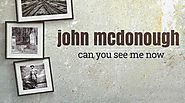
John McDonough is a singer/songwriter from Austin, Texas whose shows span five decades of hits combined with unique originals. John’s acoustic guitar work, passionate vocals, and personal lyrics result in a modern singer/songwriter/pop sound rarely heard.
John has spent the last 22 years playing in and around Austin while co-producing and self-releasing seven CDs of original music. He has played to the rowdy crowds of 6th street, the dinner crowds of Austin restaurants, and everything in-between. Eight years ago he decided to retire from practicing psychotherapy and focus solely on music. In that time he has written and recorded four new CDs, played over 400 gigs, performed in ten major music festivals as a solo artist, eight times appeared and performed on local radio, and embarked on successful tours through the midwest and southwest. His previous two releases, ‘Dreams and Imagination’ and ‘Surrounding Colors’ both received great reviews and airplay all over Europe and the United States, and both releases spent six consecutive months on the Americana Music Association Record Chart in the United States. He has drawn comparisons to Elton John and Harry Chapin for his vocal style and abilities, while Austin radio host Stephen Rice has compared John’s emotional storytelling to the songwriting styles of James Blunt and Damien Rice.
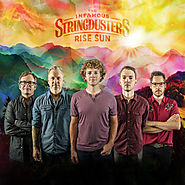
The Infamous Stringdusters received the Bluegrass Album of the Year Grammy for 2017's Laws of Gravity. That album followed Ladies and Gentlemen, in which the band collaborated with a stellar group of women singers. The creative roll continues with Rise Sun, a musically potent meditation on the journey from darkness to light.
It is a 21st century pop music cliché to say that nobody makes album-length musical statements anymore, but that is an easily debunked myth, with artists ranging from Drive-By Truckers and Jason Isbell to Radiohead to Kendrick Lamar making records that reward sustained beginning-to-end listens.
Rise Sun easily joins the ranks of Isbell's The Nashville Sound and Lamar's To Pimp a Butterfly as a album that rewards the time a listener is willing to put into it. Nearly an hour long, Rise Sun sprawls but rarely feels self-indulgent. Extended introductions and fade-outs create effective transitions from one song to the next, giving the album a seamless flow that gently guide listeners on the journey. Solos give the band members the chance to display their extraordinary musicianship, but always in service to the song.
In making an album with this kind of ambition, the members of the Infamous Stringdusters (Andy Falco - guitar, Chris Pandolfi - banjo, Andy Hall - dobro, Jeremy Garrett - fiddle, and Travis Book - double bass) do not seem to have concerned themselves much with recording any specific song that explodes all over radio or YouTube. Even after listening to the album several times, and thoroughly enjoying it, I wasn't feeling an earworm. Like so many A&R reps of the past and present, I wasn't "hearing a single". At the same time though, the album, filled with songs that weave together elements of folk, country, rock, gospel, and pop, was sinking deep into my musical heart and soul, where I think it has found a permanent space.
While the instrumentation of Rise Sun is rooted in the bluegrass of Bill Monroe and Flatt and Scruggs – as well later innovators like the Seldom Scene -- the album only occasionally hints at the traditions of the genre: a high lonesome vocal here, a certain banjo or guitar lick there. The Infamous Stringdusters have built their career on respecting the past while moving the music forward and Rise Sun is another bold step in that direction. Having said that, "Long Time Going" feels like a solid relatively traditional bluegrass tune.
While their respect for tradition is evident, it's clear that the Infamous Stringdusters, who co-produced the record with Billy Hume, don't subscribe to the ragged-but-right aesthetic that is sometimes associated with roots music. Rise Sun is a beautifully played and produced record, with every note in place, even when the band is jamming.This kind of precision can be a recipe for sterility, but the album generally avoids this, maintaining an engaging feel that nicely evokes the excitement of the Infamous Stringdusters' concerts.
Rise Sun is an album about the light and how to reach it. From the handclaps and stomping gospel of the opening title track through to the closing "Truth and Love", the Infamous Stringdusters are traveling the highways and chasing the light, both physical and spiritual.
You can't seek the light without acknowledging the darkness, which the Infamous Stringdusters do throughout Rise Sun. Hints of damaged relationships crop up, as do allusions to a world slightly off-kilter. Even "Wake the Dead", where the pursued light is primarily carnal in nature ("Go all night til there's nothing left / Have a little fun with no regrets"), ominously notes "Like some kind of zombie freezing cold / I think we all better check our pulse."
In the end though, light prevails in the luminous closing track, "Truth and Love". "Seek the truth / Find your love," the lyrics note, as the album closes with the gentle suggestion, "Let the light shine from your soul." In some contexts, this sentiment might sound trite. Heard at the end of Rise Sun, it feels like an epiphany, simple yet profound.
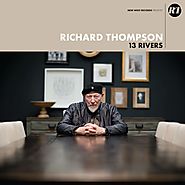
When a musician is as good as Richard Thompson, he's going to stand out from his accompanists no matter who they happen to be. But one of the many pleasures of Thompson's albums from 2007's Sweet Warrior onward has been the way he's grown into the fruitful working relationship with his rhythm section of drummer Michael Jerome and bassist Taras Prodaniuk. They rarely do much to call undue attention to themselves, which is as it should be with a good rhythm section, but Jerome is a drummer who can add color, shade, and depth to a song while holding down the backbeat, and Prodaniuk defines "in the pocket," keeping the low end solid while filling out space that allows Thompson to take flight when he solos (and reminds us all that he is arguably the finest guitarist alive). If you want to fully appreciate the sound and feel of Thompson's electric trio at work, 2018's 13 Rivers captures the interaction between these players beautifully. Thompson produced the set himself, and he and engineer Clay Blair have done an unusually fine job of capturing the nuances of the performances, both as individuals and as a group. They know how to make use of the studio, but they also know this band can make its own magic and the effect here is crisp, natural, and transparent. Hearing Thompson and his band dig into these songs is truly satisfying, and as usual, he's left us no doubt that he's a master tunesmith, in particular in the troubled introspection of "The Storm Won't Come," the edgy contemplation of the unreliable inner voice in "The Rattle Within," the toxic certainty of "You Can't Reach Me," and the uncomfortable obsession of "She Was Meant for Me." The wit that usually dilutes the darker moments on a Thompson album is, for the most part, conspicuous in its absence on 13 Rivers (though it's briefly evident on "O Cinderella"), but it does give this set a thematic consistency that's effective, and Thompson's vocals are superb throughout, making the most of his dour but incisive stories. 13 Rivers isn't an unusual Richard Thompson album in most respects, but it is one that makes the most of his craft as a guitarist, songwriter, and bandleader. Not many artists continue to create bold, compelling work that doesn't sound like it's treading creative water after a half-century, but 50 years on from Fairport Convention's debut LP, 13 Rivers is striking music from a musician who remains fresh, contemporary, and peerless.
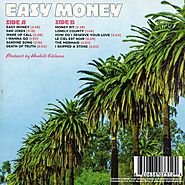
Easy Money picks up where Old Man Luedecke's award winning, and most successful release to date, Domestic Eccentric (2015), leaves off: four years farther down the road, dreaming about his ship coming in, still a parent but now grappling with the newness of middle age, dad jokes, love for an abiding partner, the death of a parent, along with some calypso-feeling local Nova Scotia history thrown in for good measure.
Composition and recording were both begun at the Banff Centre's songwriter-in-residence program. It was there that Luedecke met the album's producer Howard Bilerman of Montreal's famed Hotel2Tango studio where the album was eventually recorded. The two hit it off when Luedecke composed "Easy Money" on the tracking floor on the first day of the program. Desperate for something worthy to use in his recording time, Luedecke channeled a traditional Christmas number he knew from a Harry Belafonte record and sang largely improvised verses into a winning tune that is sure to be a modern classic: Oh yes I need it, Oh yes I want it, I dream about easy, I dream about Easy money." Don't we all.
The further nine new original compositions and two covers run a modern storytelling line from the fifties folk and calypso boom into the everyday of tangible middle life. Guest appearances by long-time collaborator and Grammy award-winning Tim O'Brien, Afie Jurvanen of Bahamas, and Fats Kaplin (Jack White, John Prine) add piquant accents to the impeccable playing of Luedecke and a crack Montreal studio band of Mike O'Brien, Joshua Toal and Jamie Thompson.
The album begins with three upbeat incantations of what is surely the beginnings of a mid-life crisis (Dad Jokes? Wakeup Call, come on!) then moves to 2 songs musing about death; both inspired in part and in different ways, by the passing of Luedecke's father, the passing of Leonard Cohen and current politics and the death of truth. There are two island-themed numbers that imagine a laid-back life in the local un-tropical paradise of the Canadian Maritimes. Then comes a country song with killer fiddling and harmony singing by Tim O'Brien, a dance number of frightful worry and then a cover of Nana Mouskouri's French language cover of Bob Dylan's topical apocalyptic plaint, "Hard Rain's Gonna Fall". This is followed by a traditional sea shanty about a mermaid and a shipwreck. The album closer, "'I Skipped a Stone", is the most beautiful song about hoping your wife will pick up the phone. The song is made all the sweeter by the special appearance of Bahamas' playing and singing, to close out Luedecke's sixth full length studio album.
Review from Kill beat music
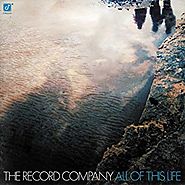
One of the virtues of the Record Company's 2016 debut album, Give It Back to You, was its simplicity and the band's stripped-down approach, so it's a bit curious that their second long-player, 2018's All of This Life, is an improvement because there's a bit more gingerbread. But on their second turn at bat, this band have managed to fill up their sound a bit without cluttering their surroundings, and the additional harmonies, keyboards, and guitar overdubs on All of This Life put muscle and not fat on the frames of these songs. Give It Back to You was also flawed by a certain lack of originality in their songs, and if All of This Life still follows plenty of well-established blues and roots rock templates, at least this time the influences appear less obvious, and the performances are strong enough that the energy and commitment pull these tunes over the finish line when all else fails. (Though stretching the moody "You and Me Now" out to nearly six minutes was not one of this group's better ideas.) And just as on the debut, All of This Life leaves no doubt that the Record Company know their stuff and work together well; Chris Vos' guitar work is both inspired and concise, bassist Alex Stiff and drummer Marc Cazorla give the music a strong and soulful foundation, and the vocals are full-bodied but generally stop a few notches short of histrionic. Give It Back to You suggested the Record Company had potential they hadn't tapped just yet, and All of This Life shows that they found at least some of it, and it's an honest step up for the band.
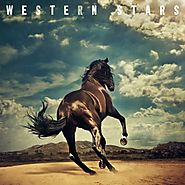
The 19th Bruce Springsteen album has been heralded as a dramatic break from tradition. So dramatic, in fact, that in the interviews accompanying its release, Western Stars’ author has felt impelled to reassure fans that he’ll be back recording and touring with the E Street Band later this year. It’s hard to miss the hint of “normal service will be resumed as soon as possible” about that announcement, balm for Boss fans horrified by how far Western Stars takes their hero from either of his standard musical styles.
There’s not a hint of the E Street Band’s booming Sturm und Drang, nor the stripped-back earthiness of his previous solo albums here: they’re replaced by luscious orchestrations, heavy on the strings and French horn, cooing female backing vocals, guitars that shimmer and quiver with tremolo effects, mournful pedal steel. It’s not founded in country music so much as a distinctive musical hybrid that flowed out of Hollywood’s recording studios in the late 1960s and early 70s, which stirred Nashville with west coast folk-pop and ambitious, sophisticated arrangements: the grownup American pop of Glen Campbell’s collaborations with Jimmy Webb or Harry Nilsson’s covers of Everybody’s Talkin’ and I Guess the Lord Must Be in New York City.
This is clearly a departure, although there’s a sense in which it’s entirely in keeping with Springsteen’s approach. His sound is almost invariably based in burnished nostalgia. The E Street Band and The Ghost of Tom Joad alike are rooted in the music that flourished in the US when Springsteen was about 12 years old: the former an amplification of pre-Beatles American pop – both the echoing drama of Phil Spector and the blare and honk of Dion and the Belmonts – the latter a take on the early 60s folk revival, with particular reference to Bob Dylan in young, keeper-of-the-Woody-Guthrie-flame mode. Western Stars simply shifts its backwards gaze on a few years, to the stuff that would have dominated mainstream taste during Springsteen’s late teens, at a time when it might have been hipper to dig Jefferson Airplane – but what budding young artist could fail to have his head turned by such consummate examples of the songwriter’s craft?
Certainly, there’s a real and rather affecting love evident in the way Springsteen channels the sound on Western Stars. There are moments of transcendent loveliness – not least the shivering instrumental coda of Drive Fast – but he’s also unafraid of its occasional tendency towards schmaltz. Quite the opposite. Listening to There Goes My Miracle or Sundown, on which he slathers on the high-camp strings and transforms his voice into a croon, denuded of the usual Springsteen grit, you get the feeling he’s having a whale of a time: an artist always held up as the apotheosis of honest, blue-collar heartland rock revelling in artifice, in much the same way as he audibly delighted in telling audiences at his Broadway residency that the character of Bruce Springsteen was a Ziggy Stardust-ish construct who had never done anything. It helps that the songs are strong enough to withstand the treatment, seldom slipping into pastiche. The only real misfire is Sleepy Joe’s Café, which feels a little round-edged for its own good, not aided by an ingratiatingly perky accordion: the E Street Band could have turned it into something more driving and potent.
“It’s the same sad story, going round and round,” Springsteen sings on The Wayfarer and listening to the rest of the album’s lyrics, you take his point. If the sound of Western Stars sets it apart from Springsteen’s earlier solo albums, the words pull it closer. Like Nebraska or The Ghost of Tom Joad, it offers a selection of bleak narratives and lingering pen-portraits, and, like Nebraska and The Ghost of Tom Joad, it seems a product of its era. The former album’s cast of conflicted cops and desperate criminals undercut the gung-ho triumphalism of Reagan’s America, while Tom Joad’s illegal immigrants and drug runners did the same for an era of record highs on the Dow Jones index. Western Stars, meanwhile, is populated by characters past their best – the title track’s fading actor, reduced to hawking Viagra on TV and retelling his stories for anyone who’ll buy him a drink; Drive Fast’s injured stuntman recalling his youthful recklessness, the failed songwriter of Somewhere North of Nashville and the guy glumly surveying the boarded-up site of an old tryst on Moonlight Motel – all of them ruminating on how things have changed, not just for the worse, but in ways none of them anticipated.
It adds up to an album that manages to be both unexpected and of a piece with its author’s back catalogue. Normal service may well be resumed in due course, but Western Stars is powerful enough to make you wish Bruce Springsteen would take more stylistic detours in the future.
https://www.youtube.com/watch?v=bsH4URIWNRE&feature=emb_logo
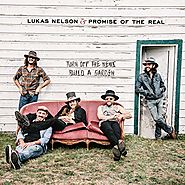
Lukas Nelson & the Promise of the Real kick off Turn Off the News, Build a Garden with "Bad Case," a pop tune powered by an incandescent jangle of riffs that evokes memories of the Byrds, or perhaps R.E.M. It's an appropriate opening salvo for a record that is lithe and bright, functioning in some ways as the flipside to the group's 2017 major-label debut for Fantasy. Where that eponymous album tilted toward burlier Americana and weathered country, Turn Off the News, Build a Garden is relaxed and open-hearted. Working its way through rockers made to bask in the sunshine, Turn Off the News has its share of barbed protest -- most evident on the second version of the title track, an acoustic rendition which ends with Nelson cussing -- the record winds up delivering on its title promise by offering organic music designed to be a sustainable resource. Taking advantage of the opportunities that have come their way since they teamed up with Neil Young -- opportunities that included contributions to Bradley Cooper's Oscar-winning 2018 remake of A Star Is Born -- the Promise of the Real do sound bigger than they did in their earliest days, and they sound wilier, too. Unlike a lot of Americana bands, Nelson and co. have omnivorous tastes and a sense of humor, a combination that results in slow-grooving R&B numbers, sun-kissed pop, rangy rockers, and a persistent good vibe. In troubled times, the band have managed to deliver an album filled with optimism, and that's a remarkable feat.
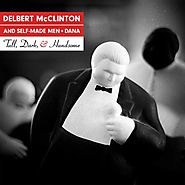
A national treasure, singer Delbert McClinton shows no signs of slowing down, sounding as energized and relevant on his latest project as he did over forty years ago on classic albums like Genuine Cowhide and Victim of Life’s Circumstances. He had a writing every song, typically in conjunction with his regular guitarist, Bob Britt, and his outstanding keyboard player, Kevin McKendree. The trio also served as co-producers on the sessions, done at McKendree’s Rock House Studio in Franklin, TN.
Than band swings like crazy on “Mr. Smith,” with Joe Maher on drums and Glenn Worf on bass setting the pace, with McClinton’s animated vocal perfectly framed by a robust horn section consisting of Jim Hoke and Dana Robbins on sax, Roy Agee on trombone, and Quentin Ware delivering a memorable trumpet excursion. The horns are replaced by the violin master Stuart Duncan on “No Chicken On The Bone,” the swinging pace continuing, but in a darker vein as McClinton expounds on his latest fascination. “A Fool Like Me” finds him trying to curtail a budding romance, adding the telling admission, “How could I love somebody, who would fall for a fool like me”. The dazzling arrangement includes stellar work by McKendree on piano, Britt on slide guitar, and a closing solo by Hoke on clarinet that injects some New Orleans-style seasoning.
“If I Hock My Guitar” has a swaggering strut with McClinton professing his love for the blues to the bitter end, then he recalls his glory days on “Can’t Get Up” before fessing up to the fact that there is no escaping the aging process. Both tracks feature a scaled-down band consisting of Maher, Britt, and McKendree on piano and organ. Hoke adds his baritone sax on the former track. Yates McKendree adds his guitar to “Loud Mouth,” a rocking tune that once again explores the folly of human existence.
The small group establishes a late-night mood as McClinton issues a clear warning to a troubling woman from his past on “Lulu”. The mood grows even darker on “Temporarily Insane,” a haunting recollection on life’s wrong turns, McClinton’s weathered tone conveying the anguish with every note. “Down In The Mouth” is brief, muscular Texas-style shuffle recounting the emotional carnage of lost love, with James Pennebaker guesting on guitar. Dennis Wage takes over on piano, Michael Joyce handles the bass, and Jack Bruno, a regular in McClinton’s band, is on drums for “Ruby & Jules,” a detailed portrayal of a roadhouse love affair. The trio stick around for the laid-back “Let’s Get Down Like We Used To,” with Pat McLaughlin joining Britt on guitar. Hoke switches to accordion, adding a Tex-Mex touch to “Gone To Mexico,” as McClinton looks to escape life’s heartache. “Any Other Way” finally finds him happy, radiating in love’s embrace. Robbins contributes several smoky tenor sax statements.
The final piece, “A Poem,” is a minute long proclamation from McClinton, accompanied by Britt and McKendree, offering one final summation on the human experience. McClinton has always been one of the best at revealing life’s most intimate moments and feelings in his songs. As a coda, it stands in stark contrast to the other thirteen tracks that are brimming with spirit, humor, and outstanding musicianship. It is always a treat to get a new one from McClinton. Tall, Dark, & Handsome is one of his best……making it highly recommended!
Review from Bluesblast Magazine
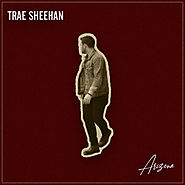
Growing up in the heart of Appalachia, Trae Sheehan was surrounded by the sounds of honest, integrity driven music. At twenty-one years his songs span lifestyles and cultures unseen by most in a lifetime. With an understanding and empathetic tone, Trae delivers a sound that can only come from the deep roots of an old West Virginia soul.
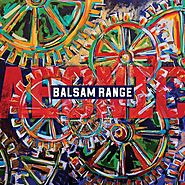
There are a fair number of bluegrass bands that can make me dance in my seat and cry within the space of a couple of songs. But Balsam Range, while doing just that with the new Mountain Home Music Co. release Aeonic, is the first to send me to the dictionary.
Aeonic, it turns out, is Greek for something that endures. And Balsam Range clearly has done that over a high-profile career that has made the band one of the best and most consistent in the business.
Aeonic is everything we’ve come to expect from a band that features an IBMA award-winning vocalist, Buddy Melton, exquisite harmonies, and solid pickers on every instrument, every song. And it’s expertly produced by the band, providing one of the few exceptions to my rule that bands shouldn’t produce themselves because an outside ear can identify issues that the insiders won’t.
Aeonic is solid from the opening mandolin riff of The Girl Who Invented the Wheel to the closing notes of George Harrison’s iconic Beatles song, If I Needed Someone.
There are a handful of songs that are made for radio, including the bouncy Get Me Gone and the previously mentioned Girl Who Invented the Wheel. And there are a handful of tender, thought-provoking ballads and religious-tinged songs that, to me, are the heart of this project.
The most powerful of these, Angel Too Soon, is hard to listen to with dry eyes, but I can’t stop myself from going back to it time and again, and I find myself singing the chorus as I move through the day.
Writers William M. Maddox and Paul W. Thorn tell the heartbreaking tale of a young girl who dies, the worst nightmare of parents everywhere. These lines are so devastatingly beautiful that I simultaneously wish I’d never heard them AND wish I’d written them:
“Today would have been her birthday,
so her mama made her favorite cake.
She wasn’t there to blow out the candles,
But daddy lit ‘em anyway.”
Nearly as powerful, and just as honest, is Help Me To Hold On, a song about those who are marginalized in America. Writers Milan Miller and Thomm Jutz focus on a homeless man who is “sad as sad can be” and a 17-year-old girl contemplating suicide after dealing with “bad choices and a bad man.” It’s effective without being preachy.
Still, I have some reservations about Aeonic, which, frankly, probably says more about me than about Balsam Range. The band has performed at such a high level for so long that a few good but not great songs here have a certain sounds-like-I’ve-heard-them-before sameness that makes them all run together. And while Melton is an outstanding vocalist worthy of his trophies, the band has three other outstanding singers – Caleb Smith, Tim Surrett and Darren Nicholson. I long to hear more of them out front, especially Nicholson, whose voice is a secret weapon.
Overall, though, Aeonic is a winner, proving that Balsam Range hasn’t only endured but thrived. You should own this record.
